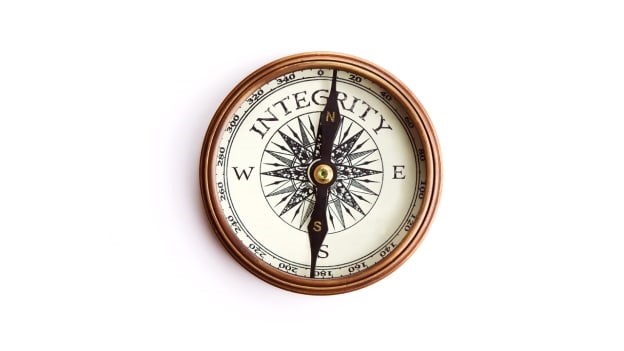
- November 10, 2020
- Integrity
On a corporate level, we are left with a very important question. Profit-maximizing behavior or moral integrity? Can companies have both?
Integrity… From the biblical rendition to the corporate virtue, the journey of the Latin adjective has been far from consistent to the sense of wholesome-ness it provides in the modern world! Here is a historical paraphrase of the socio-cultural interpretation versus modern day corporate culture with an eloquent conclusion to the same!
Prophet Daniel, from the Bible and the rest of the monotheistic Abrahamic world, is often cited as the truest example of a man of integrity. His name, literally meaning “God is my judge,” would go on to prove to be a testament to God’s example of righteousness. From his journey from Babylon to his disputed tomb, he went on to create an impact on not just Christianity, but also Judaism, Islam and the Baháʼí faith! Similarly, a lot can be learnt from faith in our modern-day corporate structure.
The supreme quality for leadership is unquestionably integrity, goes the quote. At the workplace, Integrity is definitely one of the fundamental values that is sought from potential employees. A person who has integrity scores in relationships with co-workers, customers, and stakeholders and is hence an asset to any organization. It is also a known fact about the essence of integrity that it lies within the truthfulness. An HR professional's moral righteousness is often a matter of debate when a member of the workforce raises doubts within the corporate environment. What we can learn from faith about the same is all about integrity, righteousness, truthfulness, correctness et al. These qualities are of a paramount importance to the Human Resources professional and all of corporate too!
Managers never think that the company may actually have to take on the onus for an individual's misdeeds. Simply because ethics is often considered as something between individuals and their consciences. An organizational wrongdoing can never be dismissed as a mere isolated incident by a single employee. This is the thought process that all companies should vouch for!
Ethics, however, is so much more than that… While one could argue about integrity and ethics going hand to hand, one could also argue that its significance is often lost!
Let us now underline the vital statement that this article wishes to indicate. Ethics, my friends, has everything to do with management.
"Managers who fail to provide proper leadership and to institute systems that facilitate ethical conduct share responsibility with those who conceive, execute, and knowingly benefit from corporate misdeeds," states the Harvard Business Review.
Hence, Integrity should be one value that the boss looks for in a potential employee, as a person with integrity lives his or her values in alliance with teammates, clients, and those who have a stake in the organization. Now that is the kind of potential employee that the Human Resources department often screens for.
Coming back to the topic in hand, truthfulness and faith are integral and hold an intrinsic value. Individuals who exhibit morality trail others towards them because they are virtuous and incorruptible. They are ethical and can be counted on to conduct in a righteous way despite no one being witness or even being made aware of their capacities.
On a corporate level, we are left with a very important question. Profit-maximizing behavior or moral integrity? Can companies have both?
Honestly there is no virtue in restraining the pursuit of profit: profit maximization is moral. However, one may face ethical issues in maximizing profits in a truly exploitative capitalist set-up. Let me make it clear, capitalism need not be exploitative. It can be just, rewarding and equally ethical. This isn’t just my opinion, history, along with ethics organizations like Ethisphere, have been witness!
But as Peter Schwartz eloquently explains in his Huffington Post article (also required reading in order to pursue my passion for corporate guidance writing) and his book, In Defense of Selfishness, preaches how the peoples' confusion of rational self-serving and often, irrational preying upon others, is laughable! They consider Attila the Hun and Bernie Madoff the same as great theorists and promoters, such as Thomas Edison and Steve Jobs, who don't exploit others but trade with them instead, exchanging value for value for mutual benefit.
With a heavy heart, there is something for every HR professional to take home to think about… Integrity, ethics and the cause of a working man, now, amid a global pandemic!
Author: Aatish Jaisinghani
Nepal’s HR Ecosystem in 2026: Where It’s Headed
January 01, 2026
Growth Sellers Pvt. Ltd.: Supporting Careers and Businesses in Nepal
December 22, 2025
HR in Nepal Is Changing Fast: What Every HR Professional Needs to Know
December 21, 2025
HR in 2025: From “Human Resources” to “Human Results”
December 19, 2025
Categories
Archive Post





